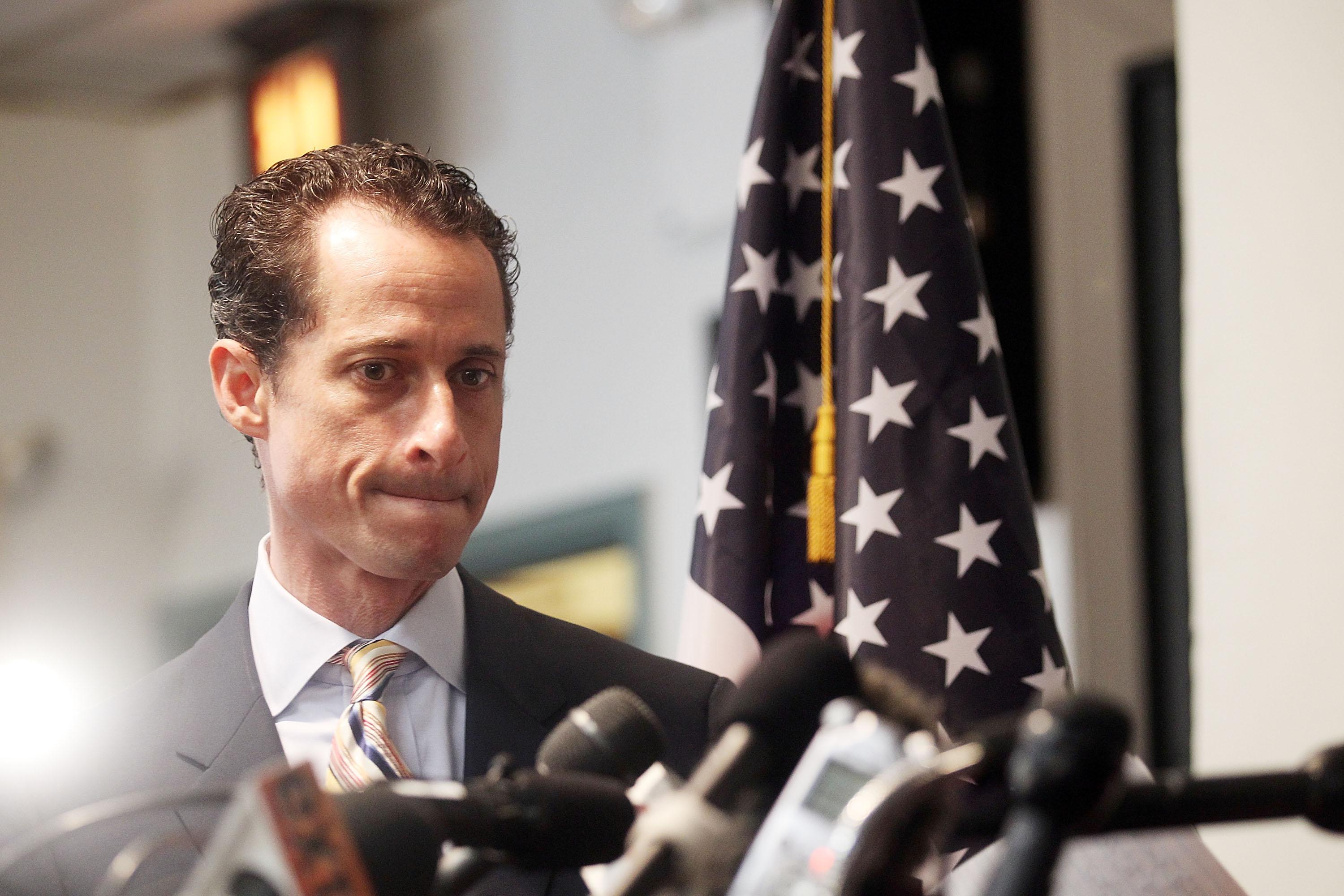The headline that finally brought down Anthony Weiner would have been poison to any politician. It was a June 10, 2011 Fox News exclusive by Jana Winter, the reporter currently fighting in court to protect her sources on the James Holmes story. And it read:
Exclusive: Police Investigate Weiner’s Messages to Teenage Girl in Delaware
Winter had been chasing down ledes, and was “at the high school junior’s home” when the cops showed up. Anyone who read the story would have been disappointed. “Sources close to the student said the girl followed Weiner on Twitter after seeing him speak during a school trip to Washington on April 1,” reported Winter. Weiner, after signing on to follow the girl’s Twitter feed, direct-messaged the girl on April 13, the sources said, though it is not clear what other communication the two may have had between or after those dates.”
By June 13, it was clear: Weiner hadn’t sent anything sexual to the girl. New Castle County police confirmed that, and washed their hands of the media frenzy. But three days later, Weiner resigned. It had felt like the drip-drip of shirtless selfies, dick pics, and young girls—whatever their relationship with Weiner—would never end.
As readable as it is, the New York Times magazine profile of the Weiner family sort of blows right past this. A novice in the scandal (and why would you want to know more?) would think that Weiner sent one picture to one fan in Seattle and was brought down by the jokes and shame, eventually admitting that he’d “sent messages and photos of an explicit nature with about six women over the last three years.” He was a pervert, he admitted it, and he’s a better person now. (“There was definitely a douchiness about him that I just don’t really see anymore,” says his brother Jason.) The most confounding part of the story—as reporter Jonathan Van Meter says—comes when Weiner tries to confess, sort of.
He closed the door, and I asked if he was prepared to tell me how this all started. “The story of the scandal?” he said. The original behavior, I said. He paused for a long time and then started in.
“Part of the challenge of getting to the bottom of it for me,” he said, “is that I viewed it as so frivolous that it didn’t spark a lot of, like, ‘O.K., I started doing it on this day’ or ‘O.K., now I’m crossing a Rubicon.’ For a thoughtful person, it’s remarkable how little thought I really gave to it until it was too late. But I think a lot of it came down to: I was in a world and a profession that had me wanting people’s approval. By definition, when you are a politician, you want people to like you, you want people to respond to what you’re doing, you want to learn what they want to hear so you can say it to them. Twitter and Facebook allowed for me — not only could I go to a town-hall meeting or a senior center or in front of the TV camera, but now I could sit and hear what people were saying all around. Search your name on Google, begat read comments on your Facebook page, begat looking at what people are saying about you on Twitter, to then trying to engage them. ‘Oh, you should like me!’ ‘No, that’s wrong!’ or ‘Thank you very much!’ And it just started to blur into this desire to engage in it all the time. Someone stops me in the airport and says, ‘Wow, you’re amazing.’ Well, O.K., now, at 2 o’clock in the morning, I can come home from playing hockey and I can find someone saying, ‘Oh, that was great’ or ‘You’re an idiot.’ So somewhere in there it got to a place where I was trying to engage people in nothing about being a politician. Or sometimes it would start out about politics and then, ‘You’re a great guy.’ ‘Oh, thanks, you’re great, too.’ ‘I think you’re handsome.’ ‘Oh, that’s great.’ And there just wasn’t much of me who was smart enough, sensitive enough, in touch with my own things, understanding enough about the disrespect and how dishonorable it was to be doing that. It didn’t seem to occupy a real space in my feelings. I think it would be pretty surprising to a lot of people: What was he thinking?” He scrunched up his face and shoulders. “I wasn’t really thinking. What does this mean that I’m doing this? Is this risky behavior? Is this smart behavior? To me, it was just another way to feed this notion that I want to be liked and admired.”
But that’s not really the “story of the scandal,” is it? Weiner reminisces about what a famous person he was, and how people came on to him, and he erred in not shutting this down. The details of the scandal, some of which do suggest that he was railroaded, are smoothed away, and we get a story of self-actualization. The details are more interesting than that!
